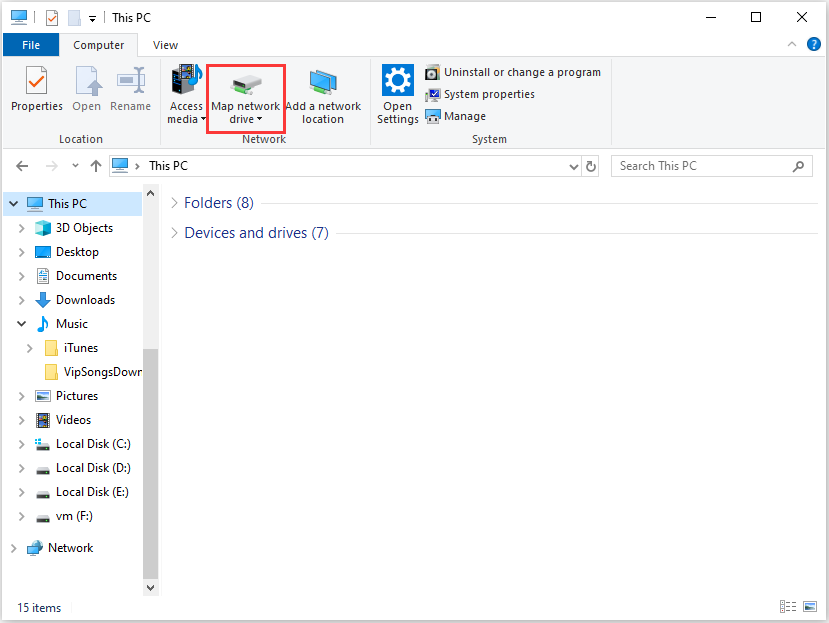Network drives may not be familiar to many people. However, when a company has multiple users sharing files through a network, network drives can provide greater benefits. Then, I will introduce information about the network drive for you. If you are interested in this topic, you can continue to read this post from MiniTool.
Definition of Network Drive
What is network drive? A network drive is an entire hard drive, which is directly hard-connected to the network via Ethernet. Any network user with appropriate credentials or authorization can use it for data storage. Use an external hard drive here, plug it into a modem or switch via USB or Ethernet cable.
Also see: What Can You Do When Ethernet Not Working on Windows 7/10
However, it is usually common to think of network drives as NAS (Network Attached Storage) drives, which are a series of drives directly connected to a network hub.
Since there are no dedicated peripherals, the NAS drive is placed in a small stack and a simplified OS is used to manage the driven series. You can log in to the drive through the network to access files as needed.
Advantages of Network Drive
Now, let’s see the advantages of the network drive.
- NAS and SAN solutions can make adding storage easier.
- Permission can specify who you want to be able to view or edit files.
- Network drives are a central storage location, making them easier to back up and mirror.
- Network drives and their files can be shared with many people.
Disadvantages of Network Drive
There are also some disadvantages of the network drive.
- Anyone with access to the drive can copy or move all of its data to another location. You may worry about your privacy.
- Network drive requires network. If your network fails, you will not be able to access all the files on the network drive.
- As a central location with multiple users, it increases the possibility of accidental deletion, modification, hacking, or infection.
Applications of Network Drive
There is some competition between network drives and cloud file storage and sharing software because they are more useful in home and business environments. Here are the details.
For Home User
You can regard the network drive as the cloud storage contained in a single network. At home, if you have files on your laptop and you also want to access these files on your partner’s desktop or tablet, you can save these files to a network drive and all devices on the network (with correct access credentials) can access these files. Network drives perform well on network drives as a large media library.
For Business User
For enterprises, especially small and medium-sized enterprises, the same principles can be applied on a larger and wider scale. For small and medium-sized companies that tend to use only one network in one location, network storage can play a major role.
The disadvantage of network drives is that the drive may fail. If the drive failure has little to do with cloud storage, it may waste local files. If the main drive fails, you can prepare a backup. Maybe, you need this post – Requirements and Recommendation for Enterprise Backup Solution.
How to Map Network Drive
Then, you may wonder how to map a network drive. Follow the guide below to do that:
Step 1: Type File Explorer in the Search box to open it.
Step 2: Select This PC from the left pane.
Step 3: Then, under the Computer tab, select Map network drive.

Step 4: In the Drive list, select a drive letter.
Step 5: In the Folder box, type the path of the folder or computer, or select Browse to find the folder or computer. To connect every time you log on to your PC, select the Reconnect at sign-in check box.
Step 6: At last, you need to select Finish.
Related article: How to Map a Network Drive in Windows 10? – Get Answers Now
Final Words
Now, you have known the basic information about the network drive. You can know what it is, what the advantages and disadvantages are, as well as the applications. Besides, you can know how to map network drive on Windows 10.
